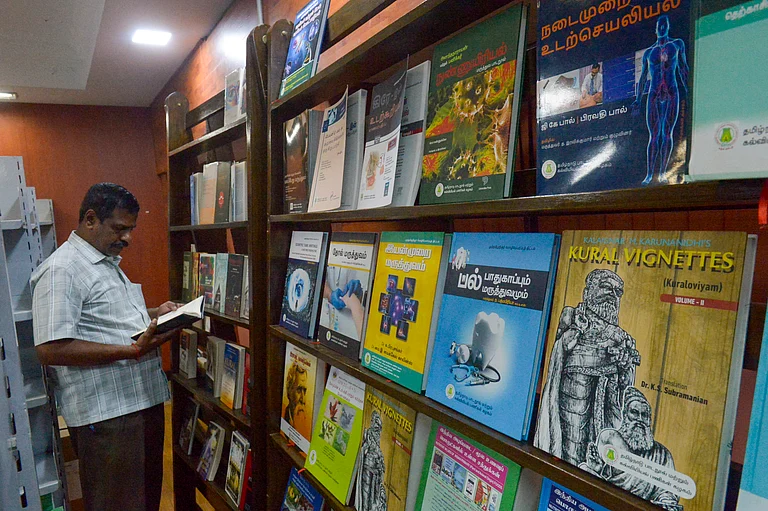‘Would all villages inevitably evolve into bustling towns and cities one day? If they do so, is it a good thing or a bad thing? Shouldn't all villages one day become towns? Is it not the logical next step?
Surinder S Jodhka in his new book “The Indian Village: Rural Lives in the 21st Century’ answers some of these questions if not all.
Known for his extensive work and contributions to the study of caste, Surinder S Jodhka is a Professor of Sociology at Jawaharlal Nehru University. Despite recommendations by my friends to explore his earlier works around caste, this book marks my Introduction to his writings.
The popular idea of an ‘Indian Village’ was conceptualized by the British Colonial rulers when they portrayed India as a collection of ‘Village Republics’. In the colonial constructs of the social life of an average Indian, the village was the world. Defined as a self-sufficient settlement within its confines having no give and take with the external world, the village, according to colonial perspectives, was rooted in traditionalism.
Was India truly reflective of the colonial master’s definition, or did it differ? Jodhka provides a compelling explanation for what led them to formulate this characterization of India. Quoting the American anthropologist, Bernard Cohen, he argues that the British colonizers did not simply occupy territories by defeating the existing rulers in the region, they also produced arguments and ‘theories’ to justify their colonization of India to themselves and to their fellow citizens back home. The idea of an Indian village as they framed it, was also useful for confirming the evolutionary view of the world in which the Britishers occupied the top spot on the ladder while the poor Indians the last.
The Indian Village was what Europe or Britain would have been in the past. While the British had moved on, along the path of Modernity, India was still stuck in the past and the typical Indian village represented a pre-modern traditional society that needed upliftment. Such a view presented British Colonization as desirable and good for the welfare and progress of a region which on its own would not have been able to come out of its pre-modern state of irrationality and ignorance. It is precisely this idea that the Indian born English journalist Rudyard Kipling had famously popularized through his poem “The White Man’s Burden’.
While the book compels the readers to adopt an independent perspective on the Indian village, free from the constraints of an Urban/Rural binary, the book falls short in its ambition to reinstate the village’s former glory allegedly seized by the advent of modernity and development. The persistent hum of the city drowns out the subtle echoes of the village throughout the narrative.
The economic reforms of the 1990's in India shifted the focus from villages to big cities. In the globalizing and liberalizing economy, the site of the nation's self-realization shifted to its cities. The expanding middle classes in the urban corporate economy no longer worried about the rural masses and their concerns. Village became a settlement that was to be left behind. Surinder S Jodhka goes on to explore the changing dynamics of rural life, without presuming that the only destiny of the rural residents is to become urban, either through migration or through a non-agrarian expansion of its economy.
The dictum ‘India lives in its Villages’ popularized by Gandhi was in fact an extension of the colonial conception of ‘Village Republics’ but the critical difference was that while the British used this concept to justify their rule over India to the British tax-paying citizen, the nationalist found this concept politically useful, and used it to define India as unique and different from the rest of the world. It helped them make a counterpoint in support of India’s qualification of being a ‘nation’ despite its enormous diversities of languages and culture. Whenever the colonial rulers tried to dismiss the nationalist claim for Independence on grounds of the country's immense diversity, the nationalists juxtaposed the colonial view of the India village in their response.
n a letter written to Jawaharlal Nehru in 1944, Gandhi emphatically stated that ‘For me, India begins and ends in the villages’. The village, he said, represented the authentic self of India. While Gandhi advocated for the village to be made central to India’s governing structure, Nehru did not believe that in the ‘village’ lay the future of India. He advocated towards modernizing the agricultural set up in villages through technology and redistribution of land. Ambedkar differed with both of them on a fundamental level. He had no sympathy for village life. For him it was a site of caste-based oppression, exclusion and exploitation.
In ‘The Indian Village: Rural Lives in the 21st Century’, Surinder S Jodhka aims to restore autonomy to a village, enabling it to engage with the urban world on its own terms. Despite the growth of urban populations, the data indicates a simultaneous increase in rural populations as well. The enduring significance of an Indian village became evident when the migrant workers in 2020 amidst the Covid-19 pandemic walked back on foot to their villages after the lockdown was announced. For millions living and working in the cities, the ‘village’ still remains a profound symbol of home. This book rescues ‘Indian Village’ from the colonial definition of being a static settlement and a relic of the past and ascribes to it a reality that is both dynamic and in an active relationship with the wider world. While the arguments presented in the book are compelling, the drawback is the repetition of them several times which might be a bit off-putting for readers.
Saleem Rashid Shah is a book critic and an independent writer based in Kashmir. He tweets at @SaleemRashid176

























